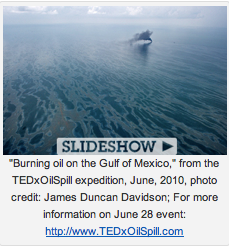This shift away from an “us versus them” mindset emerged as a subtle but important theme at the recent TEDxMidwest conference in Chicago. From design and architecture, to conservation and reforestation, a new paradigm is emerging, one that offers genuine hope for slowing climate change, biodiversity loss and even improving health care.
Leakey’s casual comment may not have seemed all that radical, but it flies in the face of conventional wisdom. Look up the word “zoonosis” and you will learn it is an animal disease that can also affect humans. By implication, then, humans are not animals. This is what every doctor is taught.
The arrogance of the definition regularly comes back to bite us—sometimes literally. Nearly 2/3′s of human maladies are zoonotic, including ebola, SARS, influenza, plague, cowpox and West Nile virus. Yet despite countless “teachable moments” over the last several years, budgets and databases, along with veterinarians and doctors, remain largely segregated. Score one for the pathogens…



















